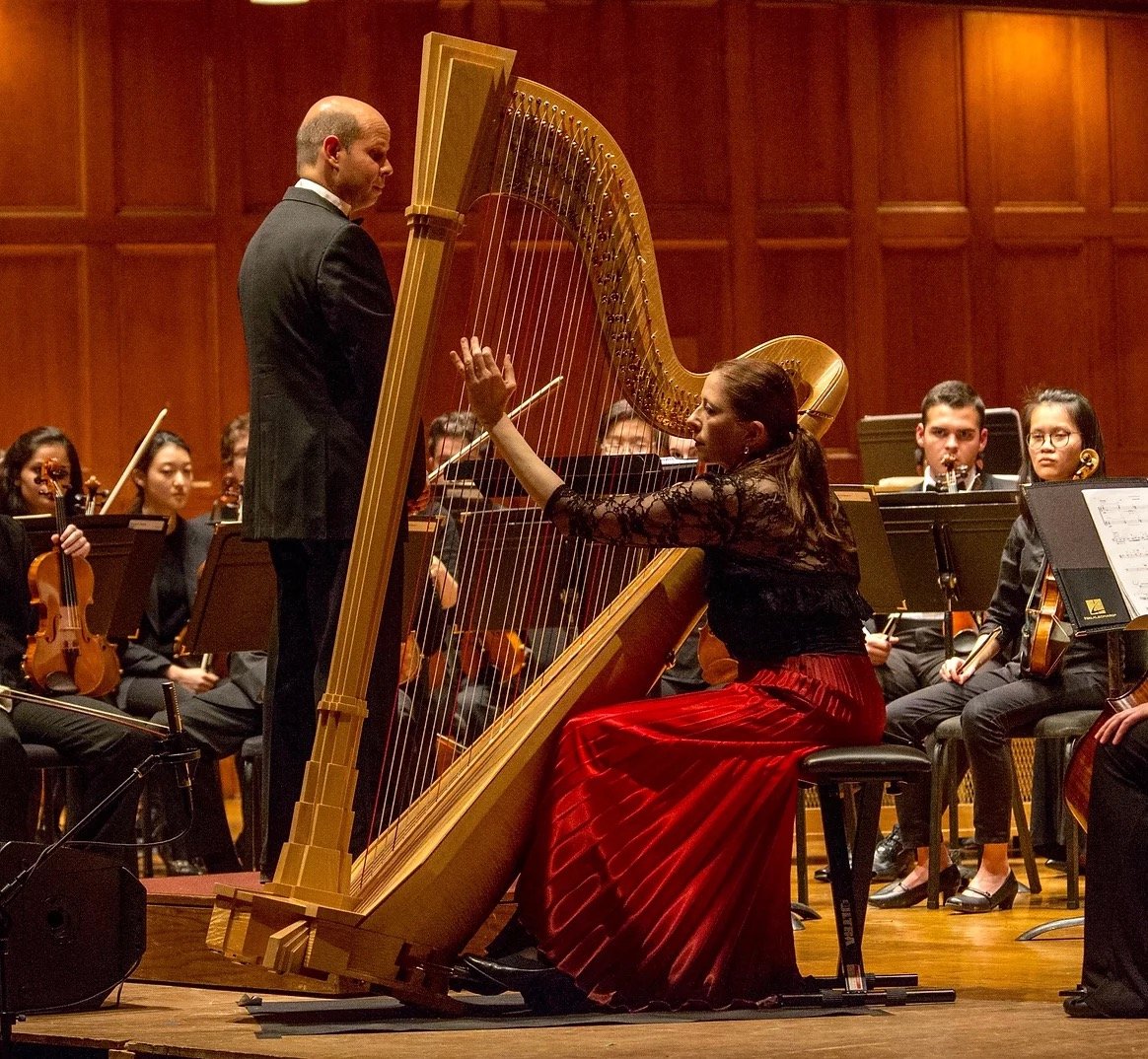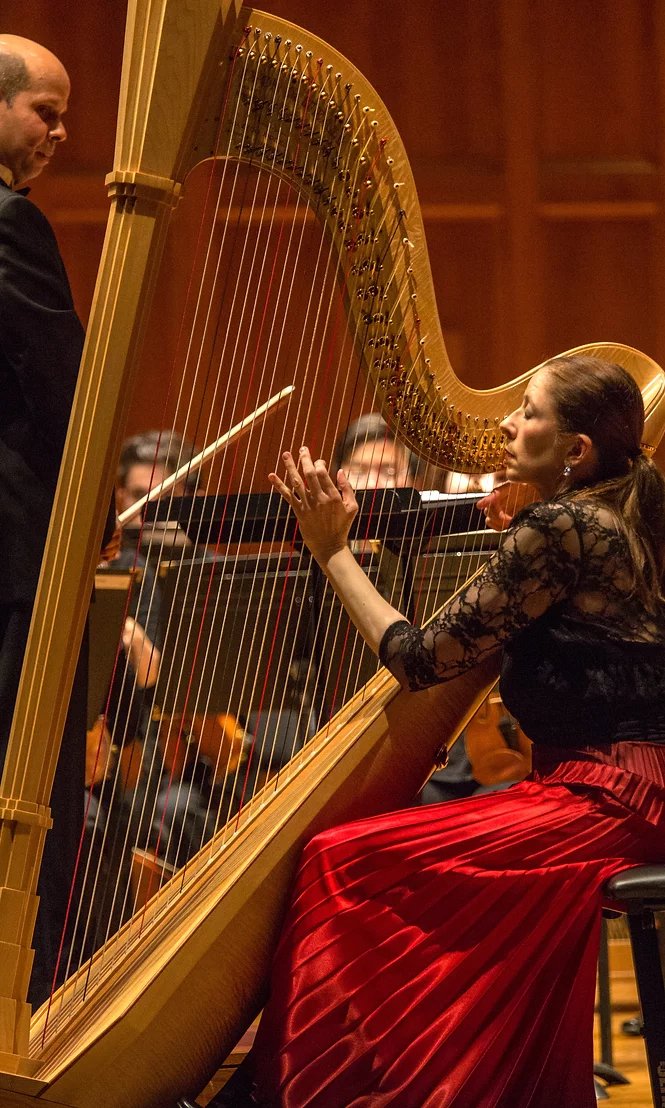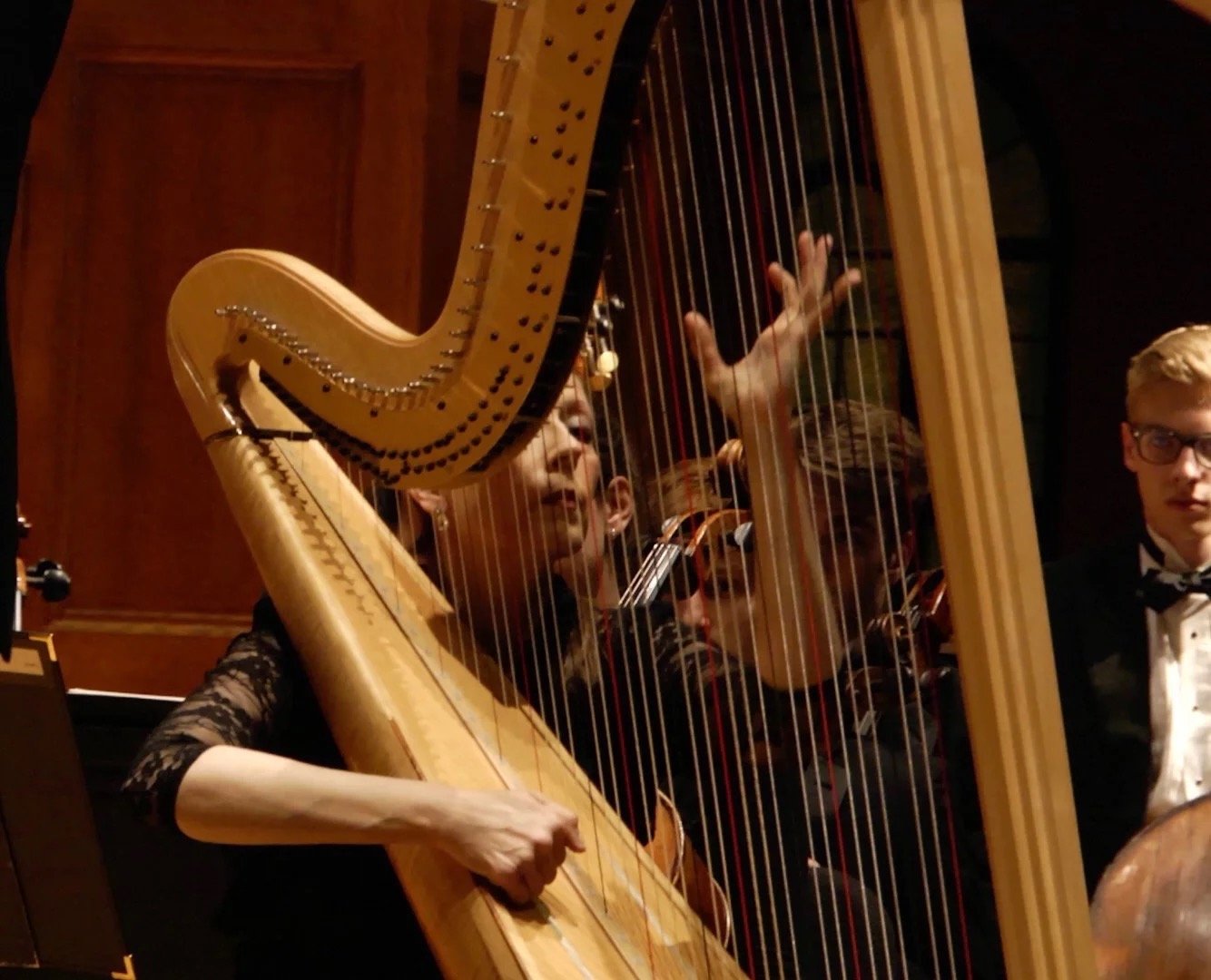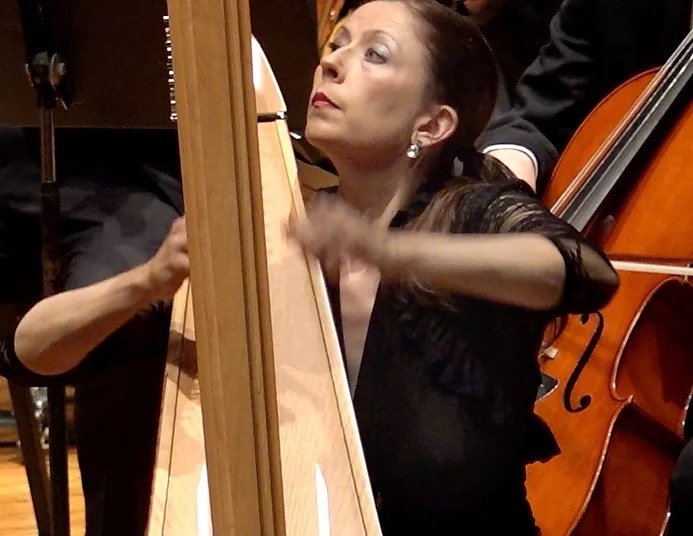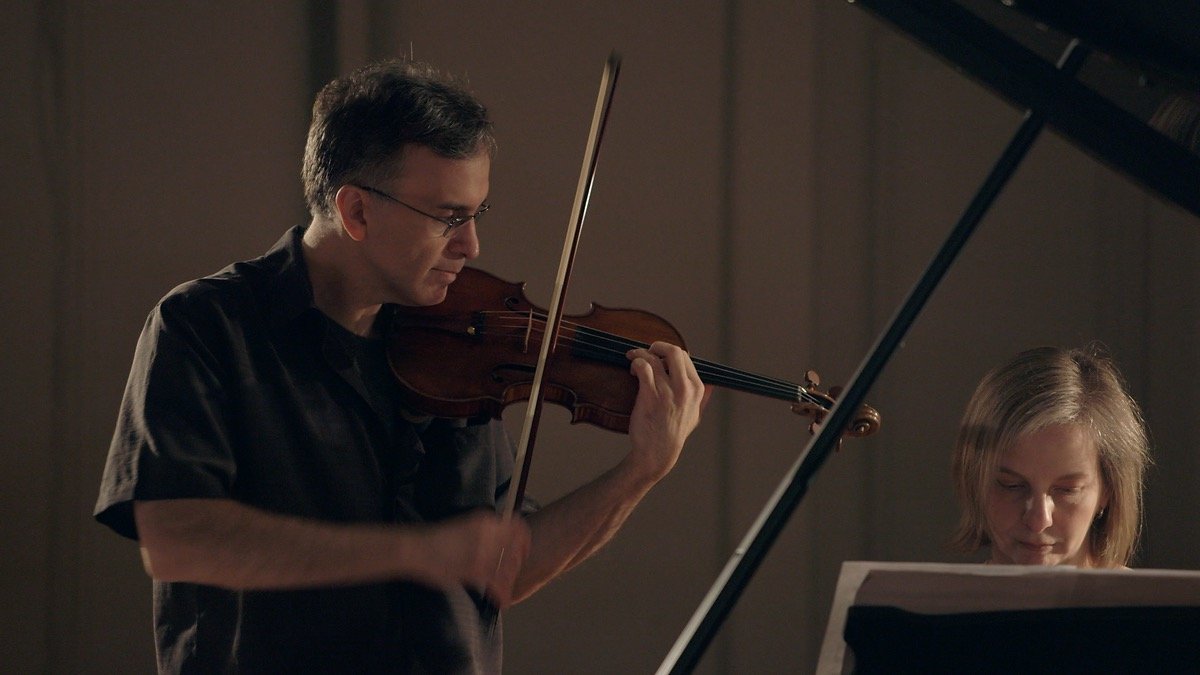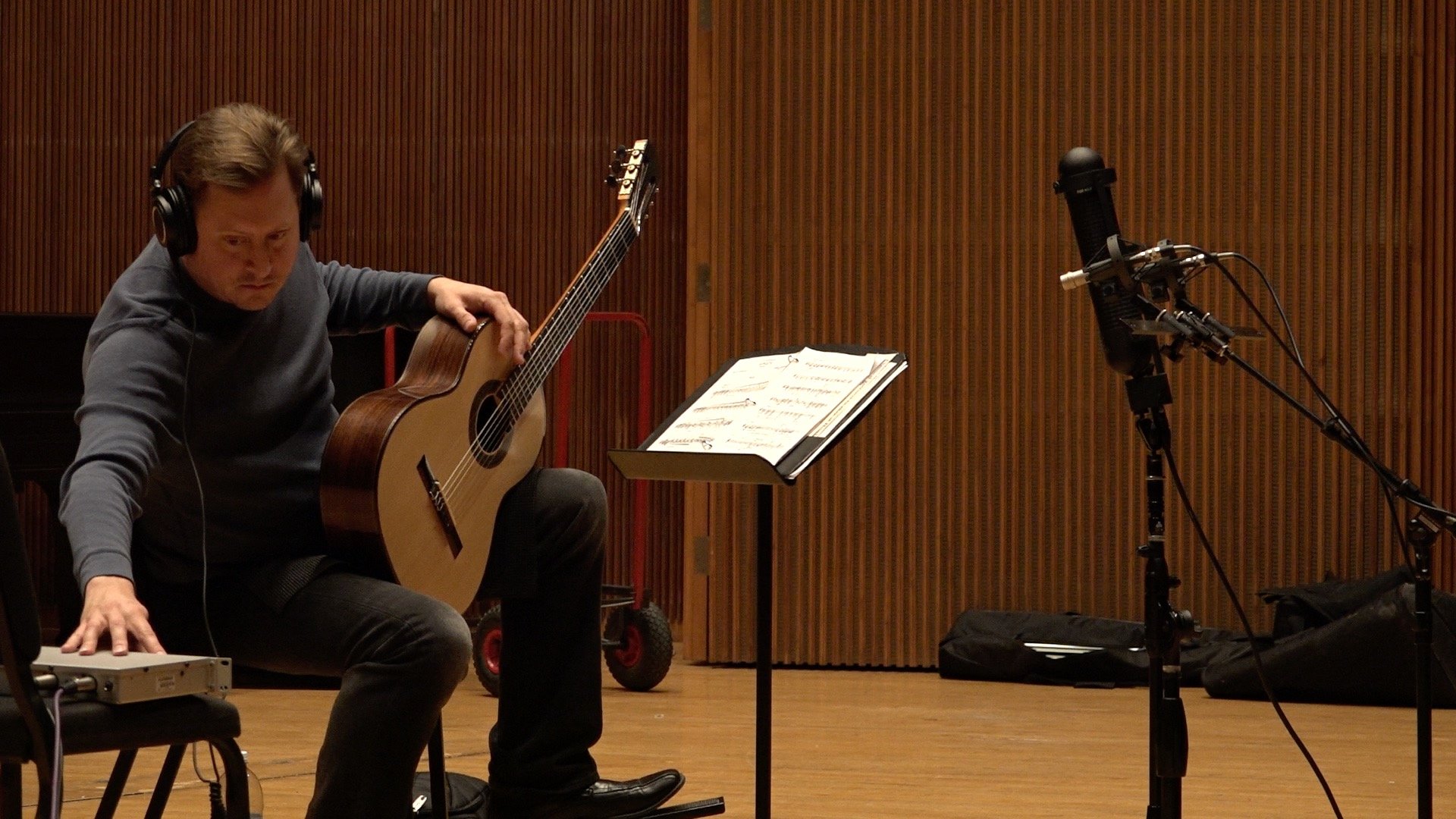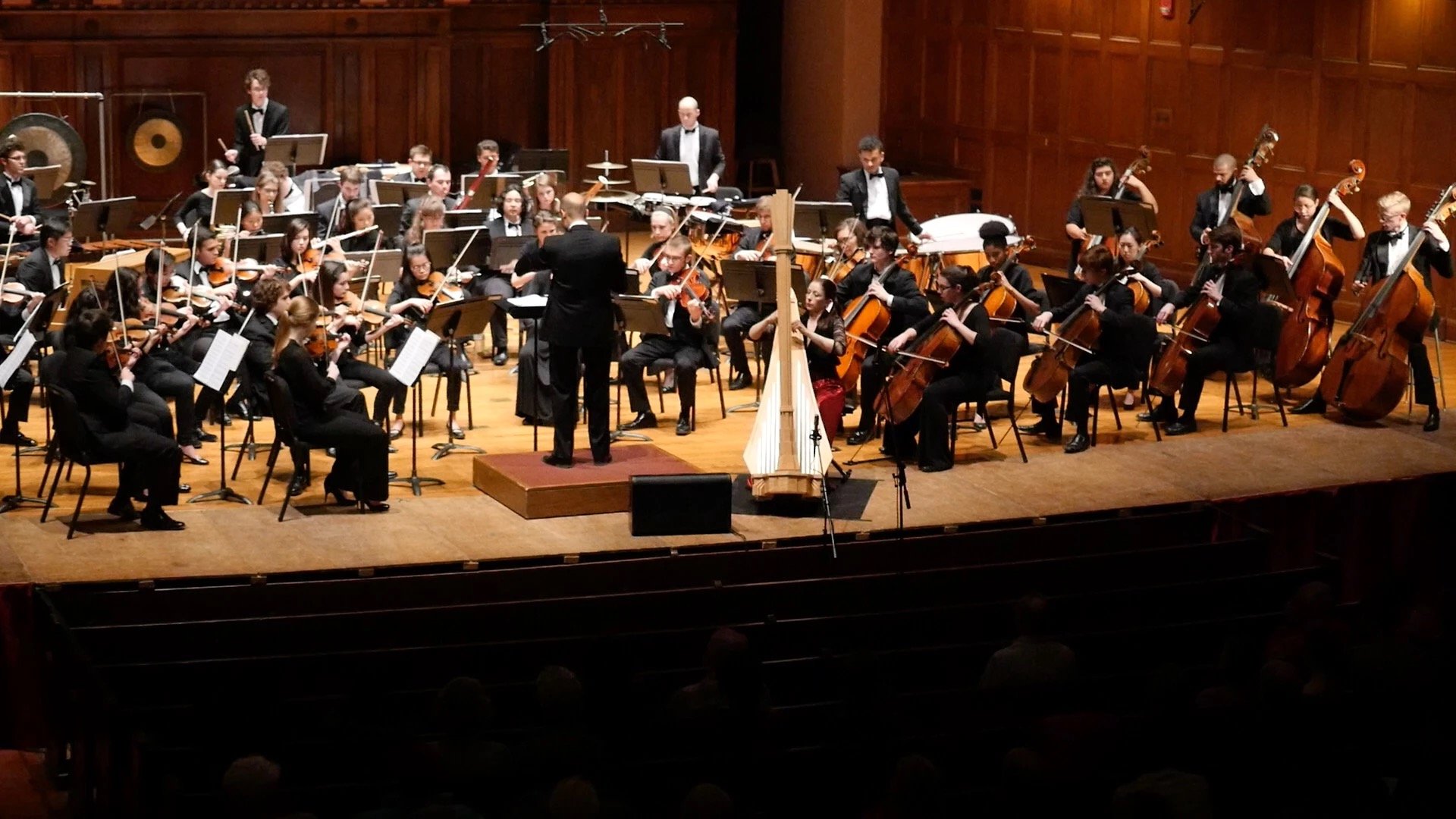A centennial celebration of the 20th-century Argentine composer Alberto Ginastera, available now on Oberlin Music.
This project celebrates the life and work of Alberto Ginastera. The Argentine composer’s innovative style draws comparisons to Bartók and Stravinsky for the artful ways in which he integrated folk music and dance forms from his native country into a striking, modernist musical language. Throughout his compositional life, Ginastera took an architectural approach to his work that, while moving through different tonal and structural worlds, remained uniquely recognizable as his own distinctive, colorful voice.
To harpists, however, Alberto Ginastera was much more than a leading force in contemporary music. He wrote our piece. He created the work that pushed the harp out of its box and gave us the kind of indelible, substantive composition that makes or breaks a solo career like mine. By my best estimate, I have performed Ginastera’s Harp Concerto close to 200 times, but in every performance, I discover something new—a hidden motivic layer, a subtle orchestral color I hadn’t noticed before, or just another interpretive pathway to explore. His music speaks to performers and audiences alike, while pushing the ear beyond the expected. This kind of creation is a gift, and my gratitude to Ginastera for that gift was the inspiration for this project.
I recently had the honor of becoming acquainted with Ginastera’s daughter, Georgina Ginastera. My evening with her was meaningful on a host of levels, but I find myself thinking about one thing in particular that she shared. She told me her father had once said that composing was a painstaking process for him. He did not scribble down dozens of notes quickly as they popped into his head. Instead, he found each note, one at a time, through a very reflective and meticulous progression. This style of creation is probably at least one reason his music has stood the test of time. So much of our culture today is made to be consumed and discarded—and it is often created as quickly as it is devoured. There is such beauty and substance in work that has been sculpted, revised, sculpted some more, and revised again. Georgina remembered her father saying, “I do not search for things; I find them.”
In many ways, the same could be said for my experience with this project, since the pieces of the journey have fallen into place almost as if they were meant to be. The artists, the timing, the resources—all have come together like treasures waiting to be found. I am enormously appreciative of the incredible musicians who gave their talents to this recording. Gil and Orli, your immense artistry is exceeded only by your warmth and humanity. Jason, your playing alone makes a piece of music great. To the Oberlin Orchestra: Your commitment and musical sincerity inspire me—the next generation of artistry is in your good hands. And Raphael, how wonderful it was to have in-depth conversations about tempo relationships and atmosphere, to debate the intricacies of note lengths and articulations, and to experiment with musical ideas in a full orchestral context. I cannot express enough gratitude for your energy and imagination, and for embarking on this incredibly rewarding endeavor with me.
Happy 100th birthday, Mr. Ginastera. Your life was well spent and your legacy continues to grow. We thank you.
— YOLANDA KONDONASSIS
(from the liner notes of Ginastera: One Hundred)

